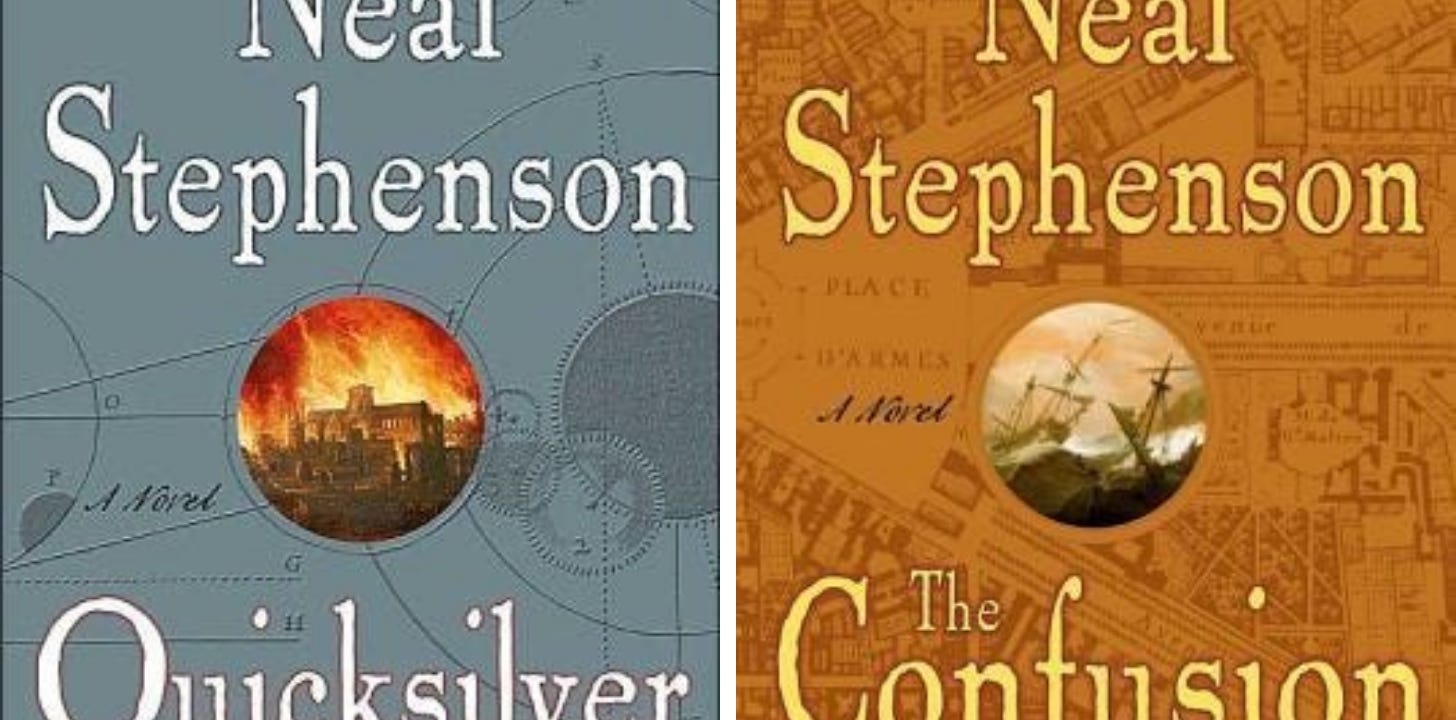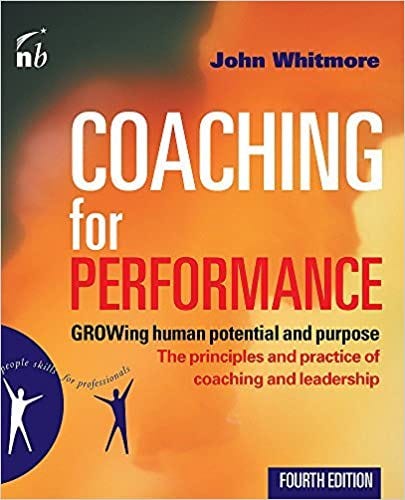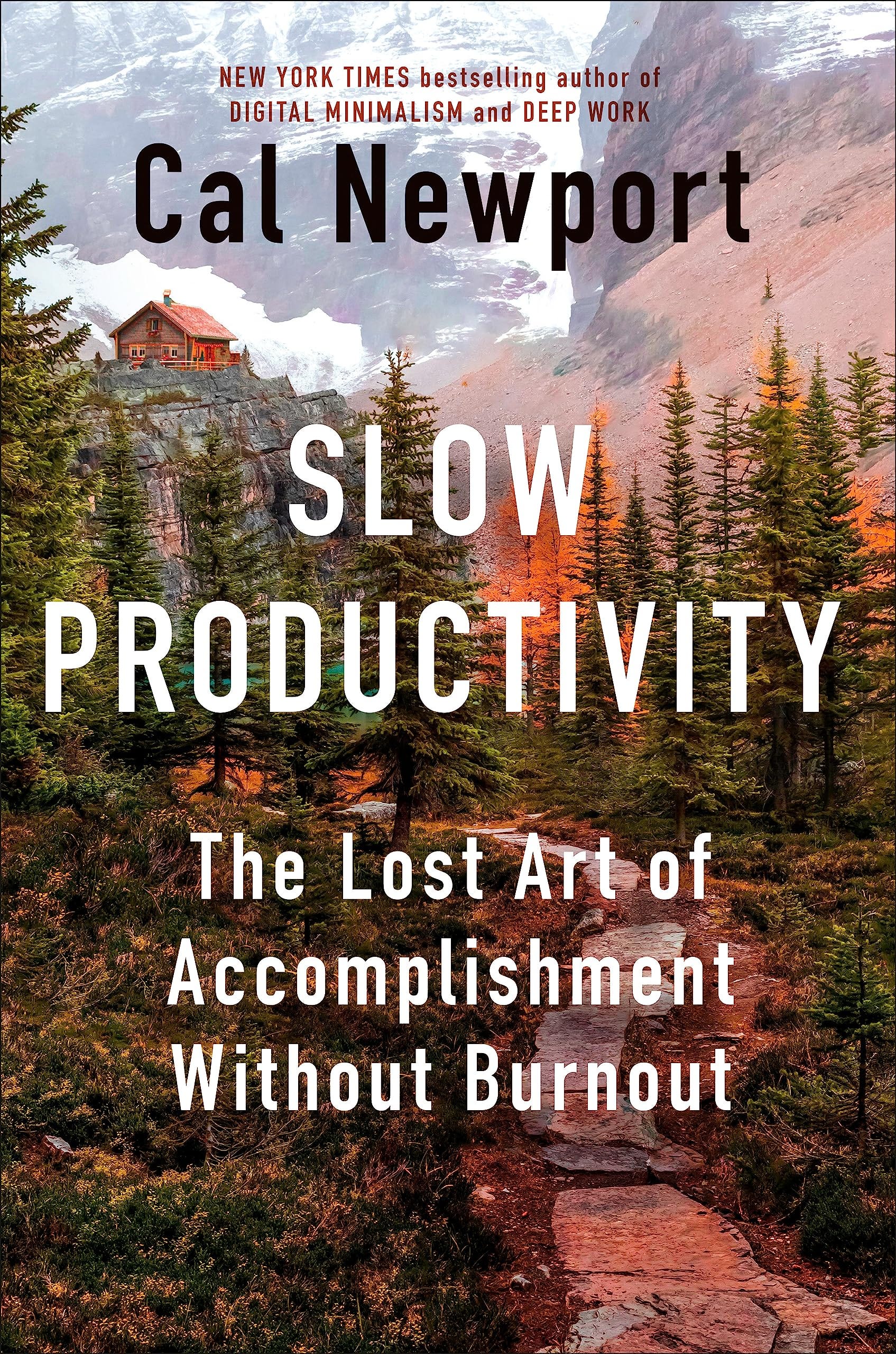Books I Read in April 2024
- Sergio Visinoni from Sudo Make Me a CTO <makemeacto@substack.com>
- Hidden Recipient <hidden@emailshot.io>
Hi, 👋 Sergio here! Welcome to another free post from the Sudo Make Me a CTO newsletter. If you prefer to read this post online, just click the article title. As this is a free newsletter, I do immensely appreciate likes, shares and comments. That's what helps other readers discover it! Books I Read in April 2024My takes on 2 fiction and 2 non-fiction books I read in April 2024, and whether or not I'd recommend them.One of my goals for this year is to make reading my default activity. That's why I recently started a new segment in my newsletter, reviewing the books I read in the previous month. Here we go with the April 2024 edition which includes 2 fiction and 2 non-fiction books. Let's start with the 2 fiction books I read, as they are part of a trilogy: Quicksilver and The Confusion by Neal Stephenson. 📚 Quicksilver and The Confusion by Neal Stephenson QuickSilver and The Confusion by Neal Stephenson
These are books #1 and #2 in the Baroque Cycle. 927 pages and 815 pages respectively of historical fiction, developing between the second half of the 17th century and the beginning of the 18th century. Not something I'd recommend to everyone. Synopsys of fiction books are somewhat pointless as the plot is only a component of what makes literature great, and with Stephenson's books, this is even more the case. You can easily find a summary of what the books are about online, though they won't necessarily tell you whether you are going to like them or not. As a teaser, you will find a lot of notable historical figures in the book. Isaac Newton, Gottfried Leibnitz, John Locke and Robert Hook all play an important role alongside Louis IV, William d’Orange and James II. I am not a Stephenson's expert, as I've only read Anathema before getting into the Baroque Cycle, and I'm already developing a distinct interest in this author. There are 3 reasons why that is the case. The first reason is his peculiar ability to write books combining extensive research in topics such as science, history, politics, and economics. He's knowledgeable in many fields, and this knowledge is put to good use in his books, without being pedantic. Second is his writing style. He’s able to combine extensive details, descriptions, and digressions, while developing multi-faceted and ever-evolving characters. He does that even when very little is happening for hundreds of pages. ]I don't get bored while reading Stephenson's books. On the contrary, I find myself fully immersed in a different reality, with all my senses engaged. Finally, is his lifestyle and work ethic. He is very intentional in dedicating uninterrupted stretches of time to work on his novels, every single day. He takes his craft very seriously and is willing to sacrifice a lot of less meaningful activities to achieve that. In his own words:
Stephenson is a good example of what the book Slow Productivity talks about. You'll understand why once we get there. Stephenson's books are not for everyone, and that is even more the case for this trilogy. He's very polarising, and you might find yourself either on the side of those who profoundly enjoy his work or with those who hate it. The only way to figure that out is to read one of his many books and decide for yourself. If you'd like to get a taste of his style I would not recommend starting with this trilogy though, as it might discourage you. Anathema was a great start for me, but others recommend starting with Cryptonomicon instead, which I haven't read yet. For my part, I intend to deepen my knowledge of this author and I plan to read all his books over time. I find his approach to mastering his craft inspiring and worth cultivating. 📚 Coaching for Performance by John Whitmore
I had this book sitting on my shelf for years before I decided to pick it up and give it a chance. My copy is the 4th edition from 2009, while the book was first published in 1992. I found that a lot of the content, the style, and the general approach to the subject have not aged well. Overall, this is a good introductory book on the topic of coaching. It provides some good practical advice on how to coach effectively. But you can probably find most of the same information in other books or online articles. And this is the first problem I have with this book. It could have been half as long and still deliver on the same key concepts. If that wasn't enough, I found its male-centric take - and its poor justification for it, not only annoying, but also to contradict some of the values and principles that the book is supposed to promote about people's potential. Whitmore views of management seems anchored in a dogmatic take of the world where all leaders are purposefully authoritarian and despotic. Last but not least, it is shallow in its approach to providing evidence or citing research. It makes a lot of claims without providing any further information or support. You're invited to trust the author on those claims, even though this is not supposed to be a book on religion. I wouldn't say this has been a complete waste of time because it was a quick read, and I found a few key concepts to be useful in practice:
Despite these few interesting pieces, I would not recommend this book. If anyone has better recommendations for books on coaching I'd be very interested. 📚 Slow Productivity by Cal Newport
This is the latest book from one of my favorite authors in the space that sits at the intersection between productivity, business, culture and technology. It follows the usual Newport structure where a first part dedicated to introducing the key concepts and ideas is followed by a second section focused on principles and tips on how to apply them in practice. The key thesis of the book is simple: doing fewer things leads to better results. That is the foundation of the Slow Productivity Philosophy introduced as:
One of the things that make Newport's books great is the extensive amount of research he does, and his ability to include a lot of those findings in a way that is both rigorous and engaging. From John McPhee to Carlo Petrini, from Jane Austin to Benjamin Franklin the book is full of examples where the approach of Slow Productivity led to great results. What makes it fresh is also the fact that it is not a moralistic take against big corporations trying to exploit their workers. It's a rather lucid and rational analysis of how a different approach to productivity from the one dominant in knowledge work leads to better results. Both more value generated and life better lived. There is both humanistic and economic value in following this approach. The two are not at odds, and he goes on to provide plenty of examples to support this thesis. In a way this books reminded me of the early Steven Covey. It's not a collection of hacks or get-rich-quick schemes. It focuses on principles, and on the idea that by cultivating them over a long period of time great results will be attained. If the first two principles - doing fewer things and working at a natural pace - are required for creating the space and time for doing good work, the third principle focuses on the non-linear nature of quality vs effort. It's an invitation to escape from a general tendency towards doing a lot of mediocre work, where quantity of work produced seems to the the main metric. If pushed to the extreme, this might lead people towards perfectionism, something that Newport addresses in a specific section of the book. He goes on to explain how to walk the thin line between great work and perfectionism, and offers the following mental model:
This approach can retrospectively be observed in the examples of people he profiles in the book. They all seem to share a similar approach:
If you’re familiar with Deep Work, the book that made Newport famous worldwide, you will find a lot of this very familiar. Some might go as far as to say that Slow Productivity doesn't add anything new that wasn't already there in Deep Work. My view is different. I see Slow Productivity as the natural evolution of the ideas put forth in the previous book. It builds on them, adds more nuances and a broader understanding of why such life can be a source of meaning. It invites me to think more deeply about the foundations of a productive life that is also well lived, beyond what any arbitrary list of practical tips could do. I recommend this book to anyone who is interested in figuring out a better way to achieve great results while living a sustainable and fulfilling life. One that is not obsessively focused on doing more as the sole indicator of one's worth. 🔭 Looking forward to…Please let me know if you end up reading any of these books after reading my observations. it's always rewarding to know when we're influencing other people's lives from a distance. As for last month's issue, I'm looking forward to two things:
Please share your thoughts in the comments section. See you all next week! 1 Stephenson wrote an article on his website to explain why he's a bad correspondent: https://www.nealstephenson.com/why-i-am-a-bad-correspondent.html Sudo Make Me a CTO is a free newsletter edited by Sergio Visinoni. If you found this post insightful, please share it with your network using the link below. If you or your company need help with one of the topics I talk about in my newsletter, feel free to visit my website where you can schedule a free 30 minutes discovery call. I'd be delighted to investigate opportunities for collaboration! |
Similar newsletters
There are other similar shared emails that you might be interested in:

